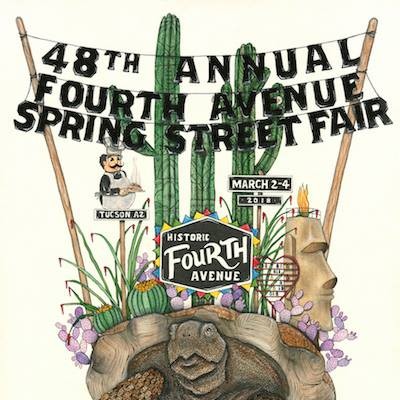Hard to believe, but true. Mark Adamo's Little Women, written for Houston Grand Opera in 1998, is being produced all over the country in an era when operas don't generally get performed after their premieres--and few enough are premiered in the first place. Even the University of Arizona Opera Theater is having a go at Little Women this weekend.
"I got a copy of the CD and fell in love with this thing," says UA voice professor Charles Roe, who is directing the local production. "I'm a little hard to please. I've heard a lot over the years, and for me to be moved by something now is really nice. I'm getting goosebumps in rehearsals, and you can't pay for those."
Don't confuse this with the Broadway musical starring Maureen McGovern that came to town last year. Same basic story--the beloved Louisa May Alcott novel--but completely different music.
"The musical that was already here is more accessible to the ear, more tonal, and it goes for the nice melodies," says Roe. "The opera gets pretty atonal, and you wonder how the kids are learning their parts because of the strange, wide intervals. But it also has lots of gorgeous moments in it and emotional high points, which is what opera is really about." He describes a death scene near the end as "very beautiful and profoundly moving."
Adamo, an American composer born in 1962, writes in a program note, "I read the book as a child, and loved it. And I recognized that Little Women itself solves certain problems for the opera composer. The novel itself--part classic, part mass-culture perennial--as well as its young, lively characters in their antique locale reminded me of opera itself these days: an art buzzing with new writing and thinking while still working with resources (the bel canto trained voice, the acoustic orchestra) that stabilized 100 years ago. I knew Jo's wild imagination, her haunting memories, would free me musically to range between abstract and tonal, poetic and vernacular, song and symphonic forms.
"The conflict of Little Women is Jo versus the passage of time. Realize this about Jo: Alone among adolescent protagonists in classic American fiction (Tom Sawyer, Holden Caulfield, Portnoy), she's happy where she is. Adored by her family, she adores them in turn. ... Jo knows adulthood will only graduate her from her perfect home. She fights her own and her sisters' growth because she knows deep down that growing up means growing apart."
Roe knew that Adamo's Little Women was exactly what he needed for a production in the UA's intimate, 300-seat Stevie Eller Dance Theatre. It's a "chamber opera," requiring a small cast and small orchestra.
But it's not exactly a student opera, something that young singers with just a few years of college training can slip into easily. The lead role of Jo, in particular, has a very wide range, and most of the other singers are sent pretty high. The meters, too, are tricky, changing all the time instead of loping along in the same rhythmic pattern for the duration of an aria.
"It's a good challenge for our students," says Roe. "When they first looked at it, they thought, 'Have we taken on too much?' But they have come through like champs."
The cast includes Martina Chylikova as Jo, Kara Harris as Meg, Chloe Hunter as Beth and Kathryn Mueller as Amy. Former voice faculty member Jocelyn Reiter will return to perform as Aunt Cecilia.
Roe is particularly pleased with his star, Czech graduate student Chylikova. But he says he's been impressed by the work of the rest of the cast, especially junior Ashley Guida as the mother, a less-central role than in the Broadway musical. "She's holding her own with everyone," Roe says, "and she's shown me that she's ready to step into lead roles next year."
It's a fully staged version with an orchestra, although the orchestra is small, and the sets are streamlined, simply because there are so many changes of scene with no time to haul stuff on and off the stage. Roe says he's working hard to make sure even his singers, who ought to know better, realize they have to act, interact and move around.
"The music is so tricky that they've been standing there staring at the conductor," he says. "I have to say, 'This is not a concert in costume!' They're following the conductor now, but I assure them that he'll follow them later. This is a very demanding opera even for professional musicians."
But one, Roe assures us, that gives goosebumps.









